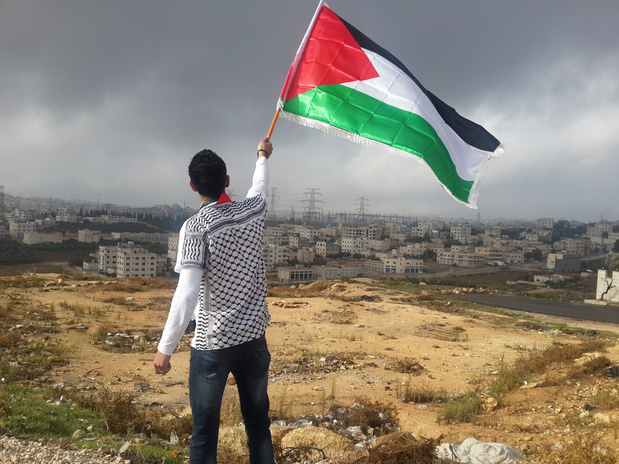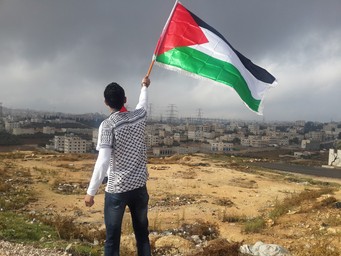With the number of injustices that occur every day it’s no surprise, no matter how upsetting, that many go unnoticed or unacknowledged for years at a time or maybe even indefinitely.
This has been a fear of Subhi Bakr and family since his son, Mohammed Bakr, was playing soccer on the beach with his cousins, Ahed Atef Bakr, Zakariya Ahed Bakr, and Ismail Mahmoud Bakr, when an Israeli rocket struck the beach and all four boys were killed in 2014. Mohammed was eleven, Ahed and Zakariya were ten, and Ismail nine.
In July of 2014, a small-scale war broke out between Israel and Hamas, the extremist organization that has had control over Gaza and parts of the West Bank since 2007. The war lasted for about 50 days between July and August before ending in a mutual ceasefire. Both sides were later criticized in a UN report conducted on the conflict. The report concluded that both sides had committed “serious violations.” Both sides also were quick to dismiss the report, Israel claiming it was biased and Hamas claiming to be mislabeled as the executioners despite being the victims.
The initial offensive was started by the Israeli side, with the stated intention to end rocket fire on the Gaza side, an irregular but notable occurrence, and to prevent militants from tunneling under the border. By the end of the conflict a total of 67 soldiers and 6 civilians were killed on the Israeli side. On the Palestinian side, 789 militants and 1,462 civilians and were killed, including Mohammed Bakr and his cousins.
After the four boys’ deaths in 2014, an investigation was led by the Israeli military and was concluded after a year, naming the incident an accident and relieving Israel of any and all responsibility. However, the Bakr family was not satisfied with the lack of justice given to their boys.
The beach where the boys played is host to many seaside hotels where a number of foreign correspondents and journalists stayed and witnessed the incident from their rooms. Images later showed the boys running from the rocket before falling to the ground, one by one. With so many witnesses with a media connection, the four boys’ story received international attention and outrage for a time.
The Bakr family’s next step was to involve international law by sending their testimony to the International Criminal Court (ICC). Since then, the family has spent about five years in limbo, waiting for a ruling.
On February 6, 2021, the ICC determined that they could and would launch an investigation into the violations committed by the Israeli military, stating they had determined that Israel does have jurisdiction over any and all war crimes committed in the Palestinian territories, essentially meaning should anything be found awry, Israel would be held responsible.
This is good news for Palestinians throughout Israel and not just in the territories, showing they are being recognized internationally. However, for the average Israeli, the ICC’s decision is troublesome. Many believe and fell, despite being recognized by a number of powerful countries like the U.S., as a legitimate state, that they continue to this day to fight for their homeland.
Gadi Yarkoni, an Israeli who lost his legs to a mortar bomb during the same war of 2014, says he “weep[s] for every civilian killed in Gaza and the West Bank but we are defending our borders.”
After so much pain and suffering on both sides, it is clear there is no victory without consequences. The conflict has raged on for decades with no solution in sight. But as the issue and those involved on both sides remain steadfast in their goals and hopes to lay claim to what they each know to be their homeland; the world continues to move on.
It has become a question whether Palestine has any chance of having a permanent place in this new world. More and more countries have chosen to support the Jewish state of Israel either out of increasingly shared ideology or potential for future cooperation, particularly in consideration of security, something Israel is known for its skill in.
Countries like Bahrain, the UAE and the U.S., previous supporters of either the Palestinian cause, at least to some extent, are now more concerned with the growing military capabilities of countries like Iran. It is no surprise the national security of these individual countries is prioritized over the conflict within unrecognized territories.
The signing of the Abraham Accords in August of 2020 made this clear and sent the message that despite the goal for peace in the Middle East, the world seemed to be running out of options. Neither the Palestinian nor Israeli leadership have ever been able to come to terms they can both agree one for many reasons, one of the biggest ones being the claims both have placed on Jerusalem as their capital.
But Palestine has noticed they may need to get on the same page as, at the very least, this world’s modern-day superpowers.
With Biden now the official president of the United States, countries all over the world are waiting to see what his first steps as commander in chief will be. Biden was elected and inaugurated during a tumultuous time, with the COVID-19 pandemic continuing to define the actions of people all over the world. With Trump as president, the Palestinians had little to gain and much to lose, the battle to stop the movement of the U.S. Embassy to Jerusalem, officially naming it as Israel’s capital, being only one example.
However, Biden offers some new potential. For the first time in 15 years, there will be a Palestinian presidential election. In January of 2005, Mahmoud Abbas, also known as Abu Mazen, began his four-year term as the first president of Palestine. He then proceeded to never leave, costing the Palestinians global favor by making their organization look undemocratic. However, Abbas was never pressured or asked to leave by other countries because of the potential power it could give Hamas. Netanyahu’s version of democracy was another reason for other countries to leave Abbas in his place of power.
Under Obama, Biden worked on the conflict and separated Palestine as the victim and Israel as an aggressor. He pushed for the two-state solution but was unsuccessful and as Obama’s two terms were carried out, the issue fell into the background.
In light of Biden’s presidency and previous involvement in the conflict, Abbas has called for an election that is to take place on May 22nd. This, essentially, is designed to put Abbas back into a democratically favorable light, despite his declining popularity. There is a lot more to consider and new parties have emerged since the last Palestinian election.
While nothing is certain, there is potential for reform, inside and outside of Palestine. Red-tape and foreign policy are sure to jolt forward movement and elections are no guarantee, but if all else fails, there is at least hope in the idea that four little boys may receive justice and their family, some well-deserved peace of mind.



